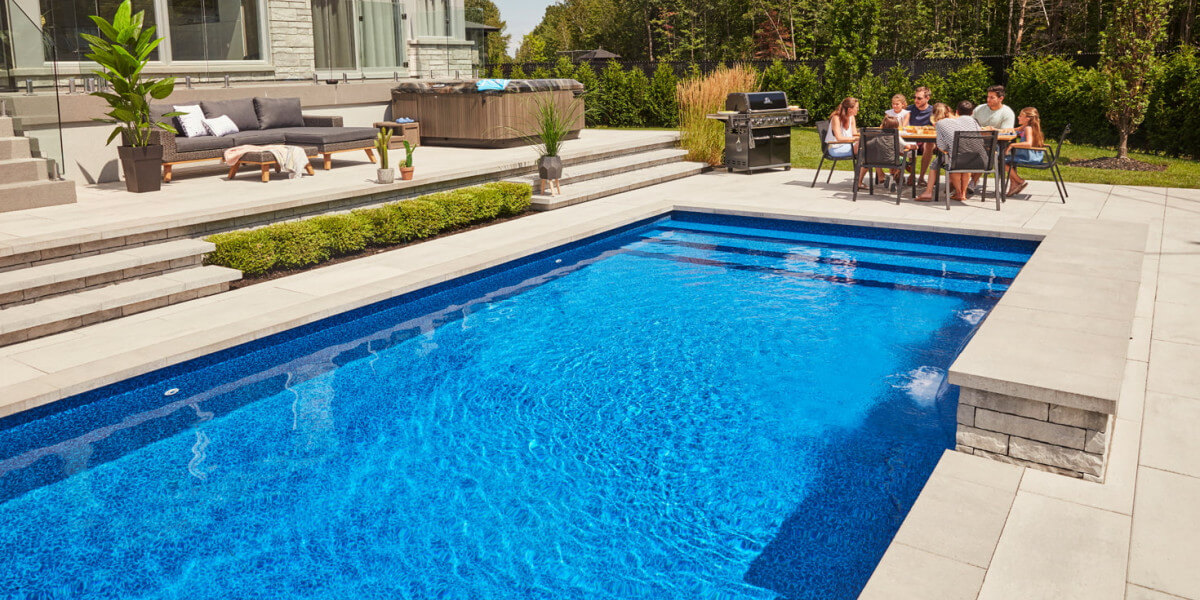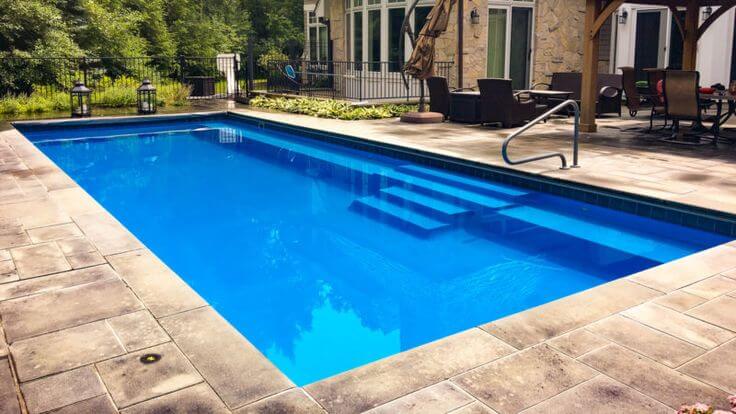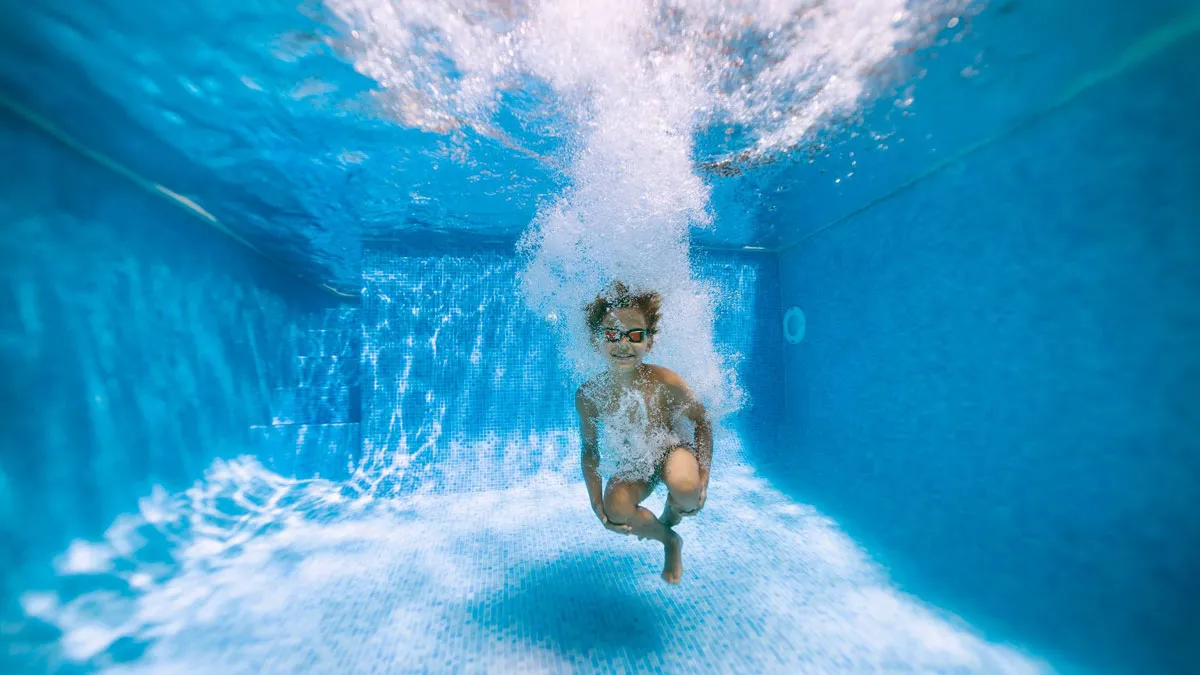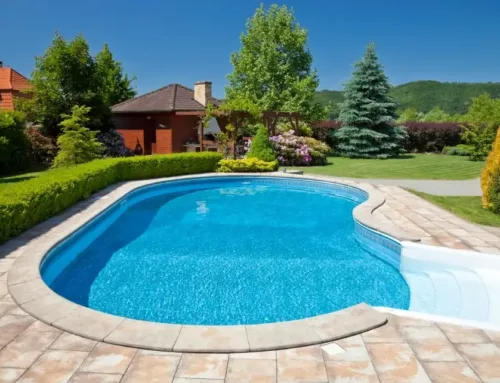When it comes to determining which is better, a saltwater or chlorine pool, it’s essential to consider the pros and cons of each pool sanitation system. Saltwater and chlorine are two of the most popular options for keeping pools clean and healthy.
In this article, we will explore the advantages and disadvantages of both saltwater and chlorine pool systems, as well as introduce some alternative technologies. By the end, you’ll have a comprehensive understanding of the factors to consider when deciding between a saltwater or chlorine pool, empowering you to make the best choice for your specific needs. So, let’s dive into the discussion and explore the question of which is better: a saltwater or chlorine pool.
Saltwater Pools
Contrary to popular belief, saltwater systems do not have chlorine. If you choose a saltwater pool or a saline one, the filtering system of your pool comes equipped with a chlorinator. The generator turns the salt in the water into chlorine and then sends it back to the pool for sanitization. Even with a pool that uses salt, you will still be swimming in chlorine-treated water. However, the amount of chlorine is much less than with a chlorine-based system. The water is softer than in chlorine pools.
Pros
A saltwater pool system has many advantages, mostly due to the reduced amount of chemicals required.
Less Harsh Chemicals
Saltwater systems are a great alternative to traditional chlorine systems because they use less chlorine and do not require harsh chemicals. The water is also gentler to your skin, hair, and eyes, and does not fade towels or swimwear like chlorine pools. It may appeal to swimmers who want to avoid chlorine exposure or to parents. The chlorine smell that some people dislike is also absent from saltwater pools.
Lower Maintenance
Saltwater pools require less maintenance and are therefore more user-friendly. The system is naturally anti-algae, so you don’t have to use any algaecides. The chlorine generator takes care of the job. Saltwater pools will require less maintenance because the chlorine generator provides a gradual introduction of chlorine versus traditional methods which can cause a sudden increase in chlorine. You will still have to use balancing chemicals, but it will be much less than using traditional chlorine.
Cheaper Maintenance
The cost of pool-grade salt is also much less than the chlorine and other chemicals needed to maintain chlorine pools. When it comes to maintenance, saltwater pools are easier to maintain and cost less.
GET A FREE QUOTE
CONTACT US AT (305) 590-5263

Cons
While saltwater pools are better for swimming, they do have some drawbacks. They may feel better on your skin, but it can cause irritation to the eyes.
Saltwater Is Corrosive
Saltwater is corrosive and will corrode metals, including outdoor furniture or grills near the pool, and even stone. Therefore, any natural stone paving near the pool will eventually deteriorate unless it is properly sealed. However, not all pool companies recommend it. Talk to your pool expert about the pros and cons of using a system that uses salt.
Remember that pool heaters and other pool components, like diving boards, handrails, and ladders, may be susceptible to salt corrosion. Saltwater corrosion can occur on the metal walls of vinyl pools. Plaster finishes in concrete pools can also be affected by saltwater. Fiberglass pools will be the least affected by saltwater.
High Upfront Costs
Although saltwater pools offer many benefits, they also have higher upfront costs than chlorine pools. The cost of installing and purchasing a chlorine generator ranges from $500 up to $2,000, and it will need to be replaced within three to seven years. It can be expensive to repair a chlor generator since you’ll need a professional rather than attempting the repairs yourself.
Cost of Energy Increases
You will also have to run the filter continuously to produce enough chlorine for cleaning. You will see an increase in your energy bill.
Chlorine Pools
Chlorine systems use a larger amount of chlorine to disinfect your pool water. Contrary to saltwater systems that convert salt into chloride, chlorine systems require you to manually add store-bought chlorine. To maintain the right chemical balance, chlorine systems need to be tested at least once or twice per week. These tests measure pH, alkalinity, and sanitizers such as chlorine and bromine. You may need to add chemicals like chlorine or bromine depending on your chemical balance.
Pros
Many people are attracted to chlorine systems because they have lower initial costs and do not contain corrosive materials.
Less Upfront Costs
Compared to saltwater systems, chlorine systems are much cheaper to install. You don’t need to buy expensive equipment like a chlorinator and can do all the water testing and chemical balancing yourself without the help of a professional. For a chlorinated pool, installing an inline or off-line chlorinator, which houses the tablets, is inexpensive. Or, you can simply place them in a floating chlorinator. The maintenance of chlorine systems is also easier than that of saltwater systems. These systems rely on complex generators and are more complicated.
Non Corrosive
Chlorine does not damage pool components as saltwater systems do. You won’t have to replace components in the future due to corrosion.
Cons
There are many benefits of a chlorination system. However, you should also be aware that certain chemicals are required to maintain a clean swimming pool.
Chemicals Can Irritate the Skin
Some chemicals can have adverse effects on your health, and chlorine is no exception. It has the potential to irritate the skin, eyes, and throat. It can cause dryness of the skin and even bleach swimwear. Moreover, the smell associated with chlorine is disliked by some individuals.

Final Thoughts – Which Is Better: Saltwater or Chlorine Pool?
the choice between a saltwater and chlorine pool ultimately depends on your priorities and preferences. Saltwater pools offer a gentler swimming experience with reduced chemical exposure and lower maintenance costs. However, they come with higher upfront expenses and the potential for corrosion.
On the other hand, chlorine pools are more budget-friendly upfront and can be easier to maintain, but they require regular chemical additions and may cause skin and eye irritation. The decision is yours, and it should be based on what aligns best with your lifestyle and long-term goals for your pool.
Ready to Dive In? Contact Florida Pool Patio Today!
If you’re considering installing a new pool or upgrading your existing one, Florida Pool Patio is here to help you make the right choice. Our experienced team specializes in designing and creating your dream pool space. Reach out to us today to discuss your options and turn your pool dreams into a reality. Your perfect pool paradise awaits!
Services We Offer:




